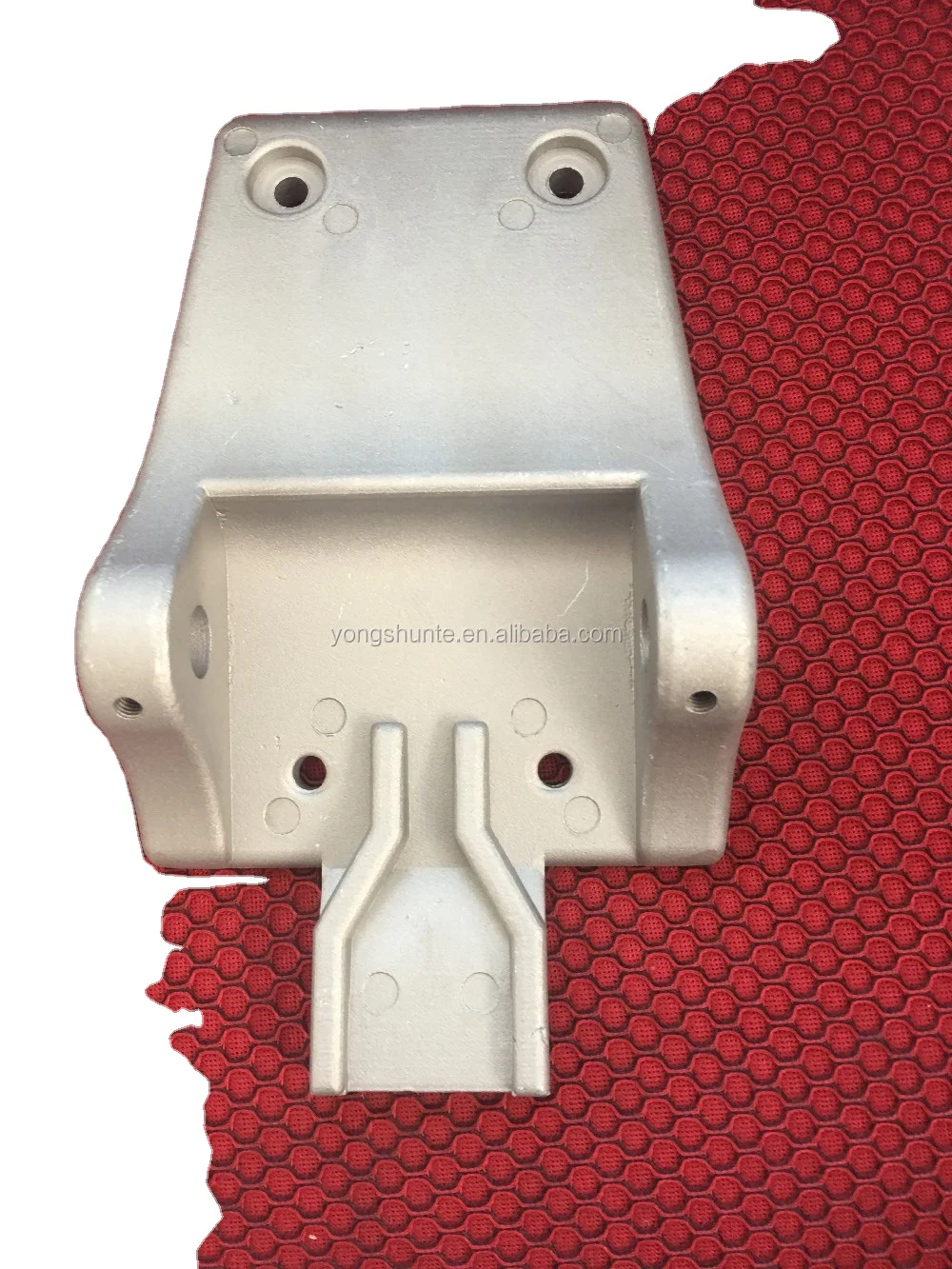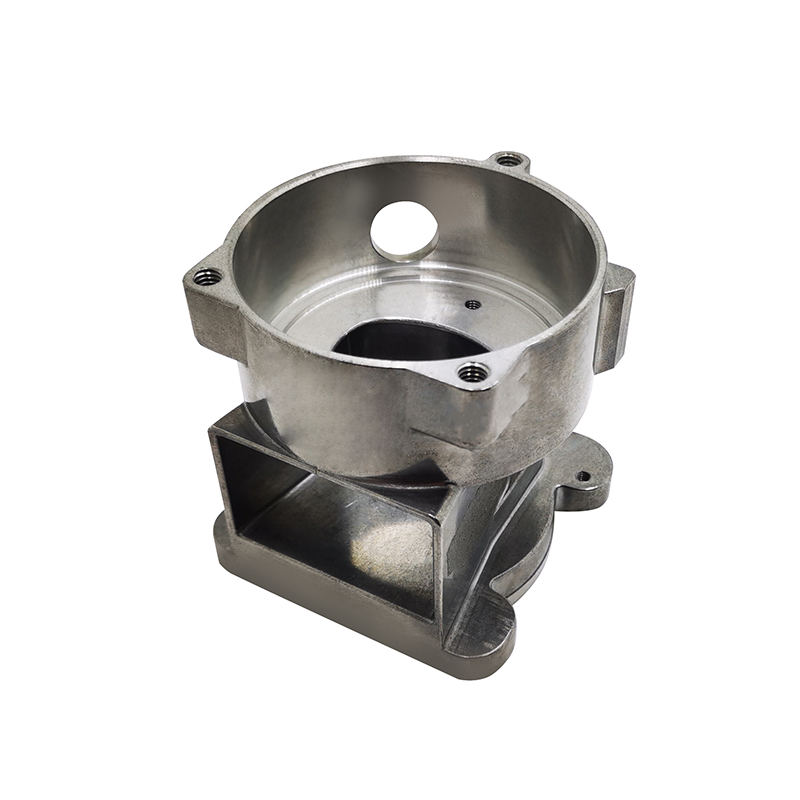The Future of Light Weight Aluminum Foundries: Technologies and patterns Shaping the Industry
The light weight aluminum shop sector is going through substantial change. Trick patterns highlight the significance of sustainability and efficiency. Developments in wise manufacturing and automation are becoming prevalent. Shops are increasingly concentrated on making use of recycled products. This shift questions regarding future practices and modern technologies. Just how will these adjustments effect production techniques and market dynamics? The responses may redefine the sector landscape in unforeseen ways.
Advancements in Smart Production Technologies
As the aluminum foundry market progresses, developments in clever production modern technologies are ending up being progressively important for improving efficiency and performance. The assimilation of automation, synthetic knowledge, and the Net of Things (IoT) is changing traditional factory operations. These innovations allow real-time surveillance of processes, permitting for prompt changes that maximize output and decrease waste.
Device understanding formulas examine manufacturing data to identify patterns and predict maintenance needs, decreasing downtime. Robotics are significantly utilized for recurring jobs, freeing competent workers to concentrate on more complicated difficulties. Furthermore, electronic twins-- virtual designs of physical processes-- promote simulations that can improve layout and operational strategies.
The adoption of these clever manufacturing innovations is driving affordable advantages in the aluminum foundry field. By simplifying operations and enhancing decision-making capacities, foundries can meet expanding market needs while keeping high-grade requirements. The future of light weight aluminum foundries is unquestionably linked to these technological innovations.
Welcoming Eco-Friendly Products and Processes
The light weight aluminum shop market is progressively concentrating on environment-friendly materials and procedures to boost sustainability. This change includes the adoption of lasting product sourcing, energy-efficient manufacturing methods, and effective recycling and waste monitoring methods. By incorporating these practices, shops intend to lower their environmental effect while maintaining competition in the marketplace.
Lasting Product Sourcing
Exactly how can light weight aluminum foundries improve their sustainability efforts? Sustainable product sourcing has actually arised as a necessary method in achieving this objective. By focusing on recycled aluminum, factories can considerably minimize their environmental footprint, as recycled products need less energy and less sources contrasted to key light weight aluminum production. Furthermore, sourcing products from licensed providers who adhere to green methods promotes accountable mining and lessens ecological effect. Foundries are also checking out different products, such as biopolymers and eco-friendly coverings, to complement conventional light weight aluminum procedures. Teaming up with stakeholders, including vendors and ecological organizations, fosters technology in sourcing approaches. Eventually, embracing lasting product sourcing not just aligns with international sustainability goals yet also positions aluminum shops as leaders in eco responsible manufacturing.
Energy-Efficient Production Methods
Light weight aluminum shops are increasingly adopting energy-efficient production techniques to enhance their sustainable product sourcing campaigns. These methods concentrate on decreasing power consumption throughout the production procedure. Advanced modern technologies, such as induction melting and maximized casting processes, are being carried out to minimize the overall carbon impact. In addition, automation and clever production systems improve functional efficiency, permitting for much better energy administration. Foundries are additionally checking out the assimilation of renewable energy sources, such as solar and wind, to power their operations. By focusing on power effectiveness, aluminum foundries not just reduced production expenses however likewise straighten themselves with international sustainability goals, ensuring an extra environmentally accountable method to aluminum production while fulfilling the climbing demand for environmentally friendly methods in the industry.
Reusing and Waste Monitoring
Welcoming environment-friendly materials and processes, light weight aluminum factories are focusing on recycling and waste management methods to enhance sustainability in their operations. By integrating closed-loop systems, these centers are lessening waste and optimizing resource efficiency. Scrap light weight aluminum, a readily offered product, is being reused on-site, substantially reducing the demand for virgin materials and decreasing power consumption. Technologies in sorting and processing innovations additionally help with the recycling of light weight aluminum, making sure that even contaminated products can be repurposed efficiently. Additionally, factories are taking on sustainable methods such as decreasing contaminated materials and advertising using naturally degradable materials for product packaging. This dedication to reusing not just decreases ecological effect but additionally improves the economic stability of light weight aluminum shops in a competitive market.
The Duty of Automation and Robotics
Automation and robotics are progressively transforming the aluminum foundry industry, considerably boosting production performance. By integrating sophisticated modern technologies, shops can decrease labor expenses while all at once boosting safety criteria for their labor force. This change not just streamlines operations yet also positions the sector for sustainable development in an affordable market.
Improved Manufacturing Efficiency
Reinventing manufacturing procedures, the integration of sophisticated robotics and automation modern technologies has actually become a keystone for light weight aluminum factories seeking improved efficiency. These developments simplify operations, decrease cycle times, and boost item quality by minimizing human mistake. Automated systems can check assembly line in real-time, permitting for instant adjustments that maximize outcome. In enhancement, robotics promote the handling of unsafe products, guaranteeing much safer workplace while raising throughput. Predictive upkeep modern technologies likewise contribute to efficiency by preparing for devices failings, thus decreasing downtime. As a result, light weight aluminum factories can achieve higher consistency in their products while responding a lot more swiftly to market needs. This welcome of automation is setting a brand-new standard for performance and operational quality within the industry.

Minimizing Labor Expenses
The change in the direction of advanced robotics and automation in aluminum shops not just enhances manufacturing effectiveness however also plays a substantial duty in decreasing labor prices. By incorporating automated systems, factories can reduce the reliance on manual work, which commonly entails high incomes and training expenses. Robotics streamline repetitive jobs such as pouring, molding, and completing, permitting for a greater result with less workers. This technical adjustment not only reduces labor-related expenses yet also boosts uniformity and high quality in production. Automation can run around the clock, optimizing operational hours without the associated prices of overtime or change differentials. Because of this, light weight aluminum shops can attain considerable financial savings while keeping affordable pricing in an evolving market landscape.
Improving Safety Requirements
While traditional light weight aluminum factory procedures often subject workers to unsafe atmospheres, the combination of robotics and automation greatly boosts safety criteria within the industry. Automated systems can do high-risk jobs, such as molten steel handling and hefty lifting, reducing human direct exposure to harmful problems. Additionally, robotics can run in extreme temperature levels and harmful ambiences, effectively lessening the risk of injury. Advanced monitoring modern technologies and expert system guarantee real-time safety and security assessments, permitting for immediate reactions to possible hazards. Furthermore, automation enhances operations, reducing the possibility of crashes caused by human error. Consequently, the fostering of these modern technologies not just boosts safety however also promotes a much more efficient and effective functioning environment in light weight aluminum shops.
Enhancing Energy Effectiveness in Manufacturing
As light weight aluminum foundries seek to maintain competitiveness in a progressing market, improving energy performance in production has actually arised as an important focus. By adopting advanced innovations such as high-efficiency melting heating systems and automated temperature level controls, foundries can notably reduce energy consumption. Implementing real-time monitoring systems permits accurate tracking of energy usage throughout the production process, enabling fast changes to enhance effectiveness.
Furthermore, shifting to alternative power see page resources, including renewable options, can better lower the carbon go to the website footprint. The integration of power healing systems, which redeem waste warm for reuse, is ending up being progressively common. Educating workers in energy administration practices ensures that every person entailed in the manufacturing procedure is conscious of energy use.
These campaigns not only reduced operational costs however additionally line up with global sustainability objectives, positioning light weight aluminum factories as liable players in the sector while improving their general competitiveness. - Aluminum Casting Company
Advancements in Recycling Aluminum
Advancements in recycling aluminum have actually gained energy along with efforts to improve power efficiency in production. The light weight aluminum industry has accepted advanced innovations that simplify the recycling process, lowering power consumption and ecological influence. Techniques such as hydrometallurgy and brand-new sorting modern technologies improve the extraction of aluminum from scrap, improving return prices and making certain better recycled material.
Furthermore, the advancement of closed-loop recycling systems allows shops to recycle light weight aluminum without significant degradation in high quality, making the procedure extra sustainable. Developments in logistics and collection, including enhanced radar and automated sorting, have also played a necessary duty in increasing the efficiency of aluminum recuperation. These innovations not just add to a round economic climate yet likewise help reduce the carbon footprint connected with aluminum manufacturing. As the need for lasting methods expands, these developments position the aluminum factory sector as a leader in accountable resource management.
Replying To Market Needs and Customer Trends
Versatility has come to be a keystone for aluminum foundries reacting to progressing market demands and customer patterns. As industries significantly prioritize sustainability, aluminum shops are moving towards environmentally friendly techniques, consisting of boosted recycling procedures and minimized carbon footprints. This change aligns with consumer choices for ecologically responsible items, driving foundries to innovate their offerings.
In addition, the increase of light-weight materials in automotive and aerospace markets necessitates advancements in light weight aluminum alloys and casting methods. Shops are investing in r & d to generate high-strength, lightweight elements that fulfill rigid efficiency criteria.
Modification has actually gotten traction, with consumers looking for customized remedies. Aluminum factories are leveraging innovative manufacturing innovations, such as 3D useful site printing, to suit details client demands effectively. This responsiveness not just satisfies consumer demands however additionally placements aluminum foundries competitively in a dynamic market landscape, ensuring their significance in an ever-changing industrial environment.

Regularly Asked Questions
Just How Do Light Weight Aluminum Foundries Influence Resident Economies?
Aluminum foundries significantly influence regional economic situations by producing tasks, stimulating need for regional distributors, and contributing to area development. Their procedures frequently result in increased tax earnings, which can money important civil services and infrastructure renovations.
What Are the Security Laws for Aluminum Shop Workers?
Security policies for aluminum shop workers include required individual protective tools, appropriate air flow systems, routine training on hazardous products, and adherence to guidelines established by work health and wellness and safety managements to lessen risks and guarantee employee security. - Aluminum Casting Company
How Does Light Weight Aluminum Recycling Affect Global Supply Chains?
Aluminum recycling substantially decreases need for raw materials, boosts resource effectiveness, and stabilizes costs. This change impacts international supply chains by fostering a round economic situation, promoting sustainability, and guaranteeing an extra resilient market in rising and fall markets.
What Profession Opportunities Exist in the Light Weight Aluminum Shop Market?
Different career opportunities exist in the light weight aluminum foundry market, including duties in engineering, quality control, production administration, and r & d. Experienced labor settings such as mold and mildew manufacturers and machine operators are likewise sought after.
Just How Do International Profession Policies Influence Aluminum Foundries?
International trade policies considerably affect light weight aluminum shops by influencing import tolls, supply chain dynamics, and market accessibility. These elements can affect functional prices, competition, and total earnings within the international aluminum manufacturing landscape.
By prioritizing recycled aluminum, factories can considerably lower their ecological footprint, as recycled materials require less power and less sources contrasted to key light weight aluminum manufacturing. Light weight aluminum shops are significantly taking on energy-efficient production strategies to match their lasting product sourcing campaigns. Automation and robotics are increasingly transforming the aluminum shop market, substantially enhancing production performance. The shift towards progressed robotics and automation in aluminum factories not just enhances manufacturing effectiveness yet also plays a considerable role in lowering labor expenses. As aluminum shops seek to maintain competition in an advancing market, improving energy performance in production has actually arised as an essential emphasis.